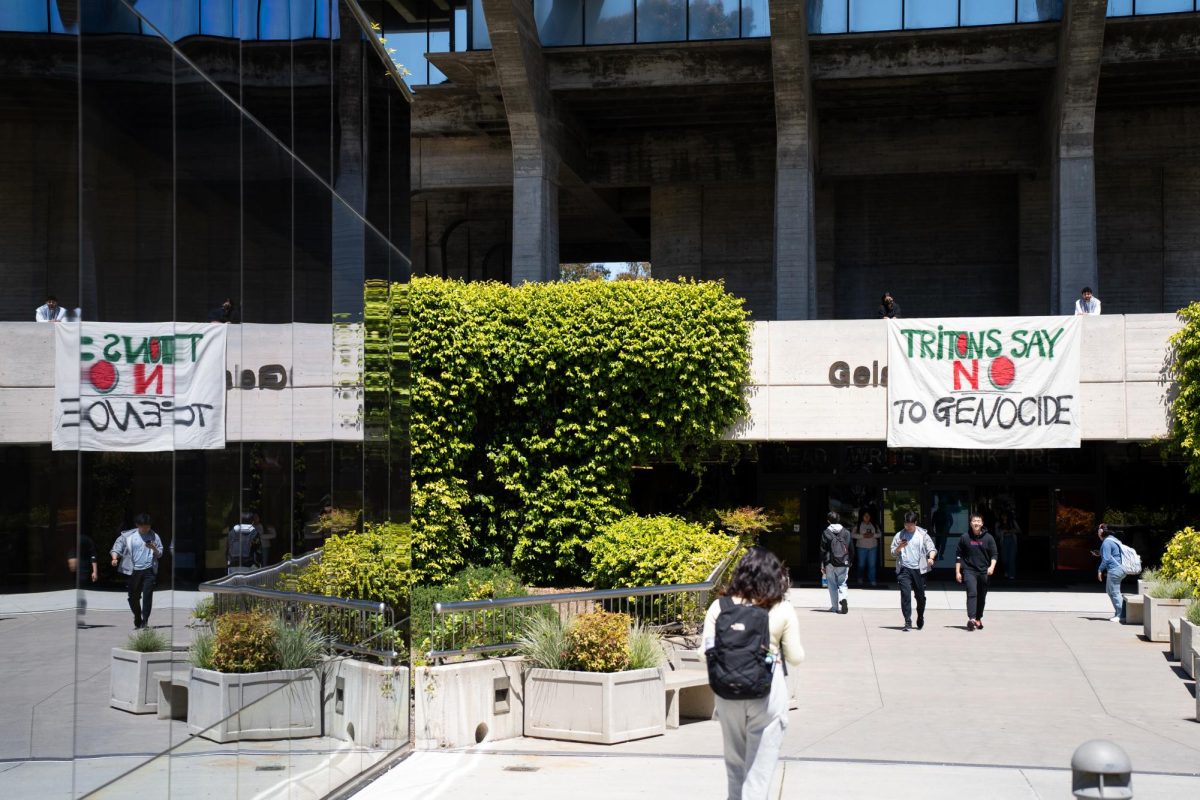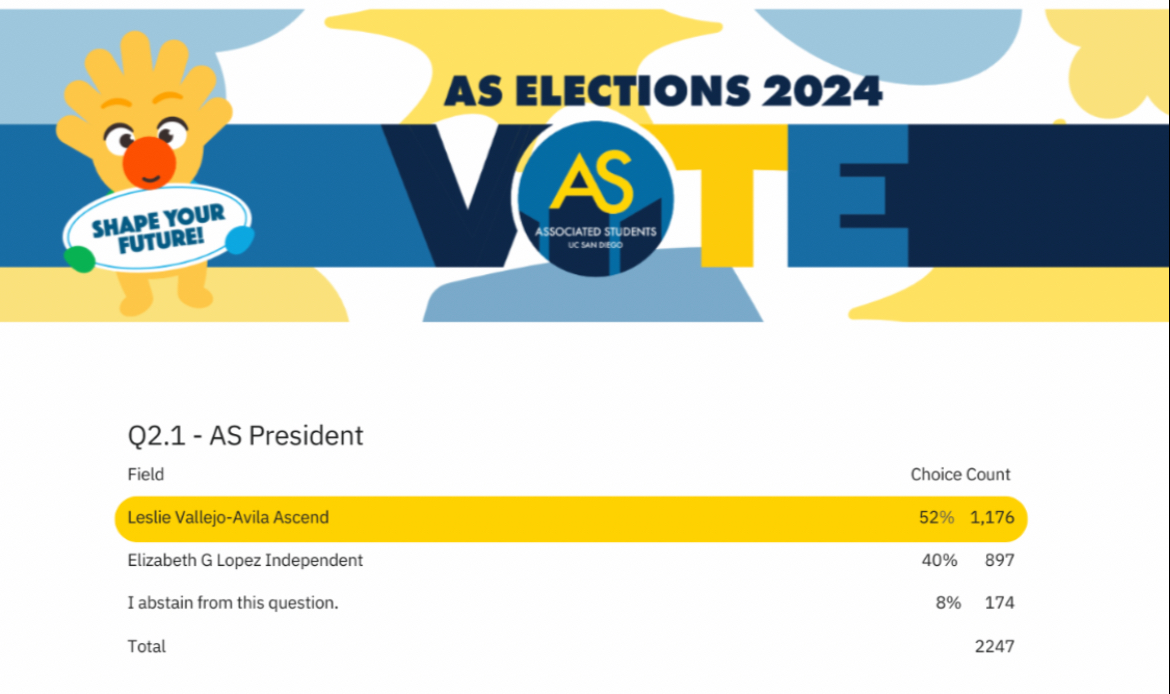“A Song of Ice and Fire” author George R. R. Martin and “Mars” trilogy author Kim Stanley Robinson discussed their books and the fields of fantasy and science fiction literature at a talk at UC San Diego on Tuesday, May 2. Clarion Workshop’s faculty director Shelley Streeby moderated the talk. The proceeds will be used to support the Clarion Science Fiction and Fantasy Writers’ Workshop at UCSD.
George R. R. Martin is a former instructor of the Clarion Workshop, alongside other notable authors such as Neil Gaiman and Jeff Vandermeer. The workshop is held during the summer and comprised of only 18 students who are selected from hundreds of applicants. The students work with the instructors to improve their skills as story writers.
Kim Stanley Robinson, referred to as “Stan” during the event, is a graduate of UCSD as well as the Clarion Workshop. He was also a former instructor for the workshop. Robinson and many of the other graduates of the workshop have gone on to win Hugo and Nebula awards for their works.
The conversation on Tuesday began as a discussion on the current state of fantasy and science fiction literature and the relationship between the two genres. Both authors agreed that science fiction and fantasy stories have become more widely accepted in the last few decades but acknowledged that there was still more progress to be made.
“Things have changed for the better in terms of science fiction writing but [the change] is not complete,” Martin explained.
On the topic of the relationship between science fiction and fantasy, Martin, a prominent fantasy writer, compared the two subjects to flavors of ice cream.
I believe that science fiction and fantasy are both flavors of the same thing,” Martin told the audience. “They’re like chocolate and strawberry ice cream: They’re both ice cream, and they both taste good.”
Robinson pointed out that the distinction between science fiction and fantasy is not clear and is up to the interpretation of society and the reader.
“For instance, time travel is called science fiction, but it’s actually fantasy because we can’t actually time travel,” Robinson described.
The authors also talked about the impact on audiences and stories when books make the transition to media. Although Martin has a hugely successful TV adaption of his series “A Song of Ice and Fire,” he still regrets that a lot of the characters and plots from the books could not be taken to the show because there were simply not enough resources and time to fit them in. Robinson agreed and explained that although he had tried to talk to producers about making his books into a show or a movie, he hadn’t found a way to bring his books justice.
“I would like if [people trying to do adaptations] of ‘Mars’ had read it,” Robinson said. “A lot of times they haven’t even read the series.”
The event ended with a question and answer session from the audience. Earl Warren College senior Anish Shandilya told the UCSD Guardian that he especially enjoyed the audience question about whether the authors got into character when they were writing.
“My favorite part was when George R. R. Martin enlightened the public on how he takes on various roles of characters in his stories, and how his mood affects how he writes about interactions with other characters,” Shandilya said.
Revelle College junior Varun Sreekumar said he enjoyed the questions written by the event organizers but didn’t like the audience question and answer portion as much.
“My favorite part was when they were discussing the advancement of science fiction and fantasy and how its role changed over time,” Sreekumar elaborated. “But I felt like the Q&A questions weren’t really conducive to any discussion and were just quick answers that didn’t really add much.”
Both George R. R. Martin and Kim Stanley Robinson agreed that the science fiction and fantasy genres have become more diverse over time in terms of the types of stories told and the types of characters included.
“The field has diversified so much in terms of genres,” Robinson told the audience. “It’s also becoming more diverse ethnically and sexually,” Martin added.
At the end of the talk, Robinson reminded the audience that the future of science fiction is not in just in books but also reflected in our lives.
“We are all living in a science fiction novel that we are all co-writing called reality,” Robinson concluded.








